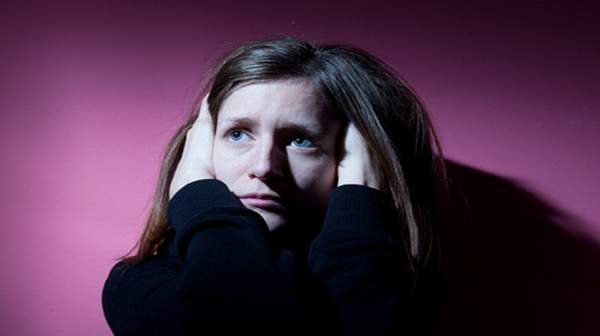What's in this article?
What is Psychosis?
Psychosis is a serious mental disorder characterized by thinking and emotions that are so impaired, that they indicate that the person experiencing them has lost contact with reality.
People who are psychotic have false thoughts (delusions) and/or see or hear things that are not there (hallucinations). These are referred to as “positive” symptoms; “negative” symptoms like loss of motivation and social withdrawal can also occur.
These experiences can be frightening and may cause people who are suffering from psychosis to hurt themselves or others. It is important to see a doctor right away if you or someone you know is experiencing symptoms of psychosis.
Psychosis affects three out of every 100 people. It is most likely to be diagnosed in young adults, but psychosis can happen to anyone.
Symptoms of Psychosis
Symptoms of a psychotic episode can include incoherent speech and disorganized behavior, such as unpredictable anger, but psychosis typically involves one of two major experiences:
Hallucinations are seeing, hearing or physically feeling things that aren’t actually there. For example:
- Voices telling you to commit acts of violence or self-harm.
- Feeling like something is crawling under your skin.
- Seeing someone take the shape of something he is not, such as a demon.
Delusions are strong beliefs that are unlikely to be true and may seem irrational to others. For example:
- Believing external forces are controlling your thoughts, feelings and behavior.
- Believing that trivial remarks, events or objects have personal meaning or significance.
- Thinking you have special powers, are on a special mission or even that you are God.
What causes psychosis?
Psychosis isn’t a condition in itself, it’s triggered by other conditions.
It’s sometimes possible to identify the cause of psychosis as a specific mental health condition, such as:
- schizophrenia – a condition that causes a range of psychological symptoms, including hallucinations and delusions
- bipolar disorder – a mental health condition that affects mood, a person with bipolar disorder can have episodes of depression (lows) and mania (highs)
- severe depression – some people with depression also have symptoms of psychosis when they’re very depressed
Psychosis can also be triggered by traumatic experiences, stress or physical conditions, such as Parkinson’s disease, a brain tumour, or as a result of drug misuse or alcohol misuse.
How often a psychotic episode occurs and how long it lasts can depend on the underlying cause.
For example, schizophrenia can be long-term, but most people can make a good recovery, and about a quarter only have a single psychotic episode. Episodes related to bipolar disorder usually resolve, but may reoccur.
How many people develop psychosis?
About three in a hundred people will experience psychosis at some time in their lives. Most of these will be first affected in their late teens and early twenties.
How is Psychosis diagnosed?
Psychosis isn’t given as a diagnosis on its own. If you experience psychosis, you may be given one of the following diagnoses:
- schizophrenia
- bipolar disorder (manic depression)
- schizoaffective disorder
- paranoid disorder, delusional disorder or paranoid personality disorder
- puerperal psychosis (a severe form of postnatal depression)
- severe depression.
The diagnosis you are given will depend on how severe your psychosis is, how often you experience it, and whether you experience it on its own or with other symptoms. As psychosis can be a symptom of several different diagnoses, you may find that you are given different diagnoses at different times.
Before you are given a diagnosis, your doctor should rule out any physical causes for your psychosis. If the cause is physical – for example, if you are experiencing psychosis as the result of a physical illness – treatments such as psychiatric drugs or talking treatments are unlikely to help.
If you use street drugs or regularly drink large amounts of alcohol, doctors will usually ask you to stop doing this before they give you a diagnosis.
Treatment of Psychosis
Treating psychosis may involve a combination of medications and therapy. Most people recover from psychosis with treatment.
Rapid Tranquilization
Sometimes people suffering from psychosis can become agitated and be at risk of hurting themselves or others. In those cases, it may be necessary to calm them down quickly. This method is called rapid tranquilization. A doctor or emergency response personnel will administer a fast-acting shot or liquid medicine to relax the patient right away.
Drugs and medication
Symptoms of psychosis can be controlled with medications called antipsychotics. These medicines reduce hallucinations and delusions and help people think more clearly. The type of medicine you are prescribed will depend on which symptoms you are experiencing. In many cases, people only need to take antipsychotics for a short time to get their symptoms under control. People with schizophrenia may have to stay on medications for life.
Cognitive Behavioral Therapy
Cognitive behavioral therapy means meeting regularly to talk with a mental health counselor with the goal of changing thinking and behaviors. This approach has been shown to be effective in helping patients make permanent changes and more effectively manage their illness.





